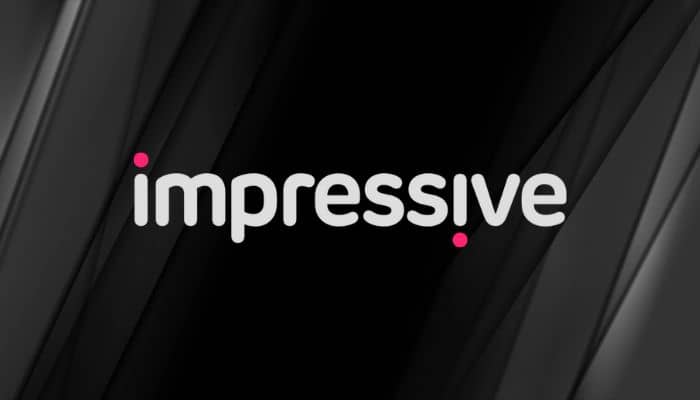2024 hasn’t been an easy year. Tight marketing budgets, a challenging digital advertising landscape, and the crunching of third-party cookies — there are plenty of hurdles for digital marketers. But with challenge comes opportunity, and smart marketers can use them to do more with less.
This article covers some of the biggest trends that will shake and shape the digital marketing industry this year, based on Brandwatch’s latest Digital Marketing Trends report. We’ll cover how you can use them in your digital marketing strategy.
Trend: Marketers embracing AI
AI’s the secret sauce, but even robots need a human touch.
Mentions of AI are everywhere. Game-changing companies, such as OpenAI and Midjourney, are disrupting industries and making headlines regularly with new features and developments.
AI will change the way we work in the near future, and companies that don’t embrace AI will be left behind. This year, marketers will need to figure out how to apply AI to their marketing efforts without losing the human factor.
In September 2023, Brandwatch asked 516 marketing professionals about their predictions for the biggest digital marketing trends in 2024, and a staggering 92% said that integrating AI into their marketing will be the number one trend. The industry is seeing a significant shift, with marketers redefining their strategies to improve their results with AI technologies.
And discussions about the challenges and opportunities of AI are massive. From November 2022 to November 2023, over 1.64 million articles were published, generating over 55.8 million total engagements. Interestingly, articles over 3,000 words in length receive a higher engagement rate than shorter articles. This could indicate that readers are really interested in learning more about the topic.
What do marketers care about when it comes to AI and marketing? Mentions of SEO and content creation increased by over 90% in conversations among marketers on X and Reddit.
The analysis shows that AI can help in a variety of marketing activities. This year, we’ll see marketers implementing AI as an integral part of almost all their activities and becoming more sophisticated about how to use AI for the best business outcomes.
Pro tip
Don’t forget the human touch when implementing AI, or you risk losing your brand’s voice and, ultimately, your customers. For inspiration, you can keep up with the latest AI trends by monitoring online conversations.
Trend: Personalisation as the customer magnet
The marketing persona is dead.
Many brands are in the same boat – trying to win customers in highly competitive markets. Standing out from the crowd and getting consumers’ attention is getting harder. And turning one-time customers into loyal customers is even more tough.
This is where personalisation comes in. Brands that deliver a superior, tailored customer experience are more likely to convert new customers into repeat customers. In one survey, 60% of consumers said a personalised shopping experience made them want to return and buy again.
But here’s the thing: Consumers not only appreciate personalised marketing, they expect it. When consumers share more personal information with a brand, they expect a more personalised experience in return. In fact, three-quarters of customers expect personalisation after a company asks them for personal information.
There are many ways to personalise a customer’s experience. For example, offering special offers to celebrate a customer’s birthday is an easy way to surprise and delight on a personal level. Another is to offer personalised products. Let’s take the British brand Skin + Me as an example. The cosmetics brand not only offers personalised packaging of its products, but customers can also consult a dermatologist to get the skincare products that best suit their needs.
Pro tip
Keeping your customers happy and engaged is critical to a long-lasting relationship. Implementing well-crafted loyalty programs can effectively entice customers back while demonstrating appreciation, ultimately nurturing lasting connections.
Trend: Creativity wins consumer attention
Creativity is the neon sign in a sea of greyscale.
In today’s world, getting consumers’ attention takes a lot of work. The average American is exposed to between 4,000 – 10,000 ads every day. This information overload makes it difficult for content marketers to cut through the noise.
Getting information across as quickly as possible is key, and short-form video will continue to be the tool of choice for marketers. Whether it’s Instagram Reels, TikTok videos, or YouTube Shorts, marketers will become more sophisticated in how they incorporate video content into their content strategy to get their message across in a matter of seconds.
Content marketers will also have to get more creative to grab consumers’ attention. With the human attention span shrinking to shorter than that of a goldfish, content marketers need to shake things up. In 2024, more experiential and interactive content campaigns will keep consumers entertained.
Mars Wrigley, for example, ran a campaign in November 2022 that capitalised on the controversy surrounding one of its products. According to Mars, 40% of consumers hate their Bounty chocolate, and the brand used this insight to run a “No Bounty” campaign, announcing that they would be removing Bounties from their Celebrations box.
Lovers and haters alike took to social media to post their opinions and memes, and the campaign quickly went viral. Online conversations about Bounty and Mars catapulted to nearly 29k mentions in November 2022, and over 24k people were talking about the Bounty affair. In total, the campaign generated nearly 75 billion impressions.
Pro tip
Keeping it simple and short is the recipe for success. Remember to get the most important information into the first few seconds of your video. Look at your existing content and repurpose it into short, snappy videos.
Trend: Social listening powers strategy
Social listening is the secret weapon for marketing strategists.
Did you know that only 1.5% of online discussions about brands and their products and services come from brands themselves? With social media users worldwide expected to reach 5.17 billion by 2024, social networks are becoming an even larger pool of consumer opinions and insights.
Brands that don’t monitor these online conversations miss a huge source of what consumers are saying about their products and services. They also miss insights into how consumers feel about competitors and their barriers to purchase. These unsolicited online consumer conversations contain valuable insights for marketing departments as well as customer services and product development teams.
With social listening tools, marketers can gather real-time consumer insights that can help them optimise their marketing strategies to become more customer-centric. In Brandwatch’s survey of 516 marketing professionals, 76% agreed that social listening tools will be used to inform marketing strategies in 2024.
With insights from social data, marketers can see how their campaigns are being received and use the unsolicited feedback to optimise their current and future campaigns. They can see which content performs best, which products customers love, and what their pain points are. They can benchmark their brand awareness against competitors and identify threats and opportunities.
Pro tip
Stay ahead of the competition by using social listening to discover the latest market insights, consumer trends, and emerging competitors. Regularly monitor the conversations around your competitors to identify opportunities and optimise your marketing strategy.
The biggest digital marketing trends for 2024
Consumer behaviour and preferences are constantly changing. It’s a universal truth that brands need to adapt and refine their marketing strategy constantly to stand out in a competitive landscape.
Whether implementing new AI technologies or experimenting with video content, it’s crucial to prioritise the customer’s perspective. Understanding the value these initiatives offer to your audience is key to staying ahead.
A customer-centric approach should be at the core of your marketing strategy, and tracking consumer opinions with social listening tools will be key to staying ahead of the competition.
Interested in more digital marketing trends that will have an impact in 2024? Read the full report to find out more.
This article is written by Emily Smith, Content Marketing Manager at Brandwatch.











